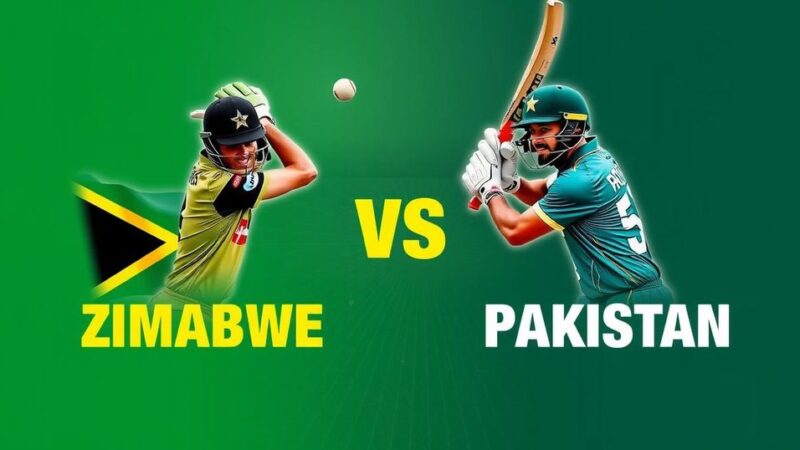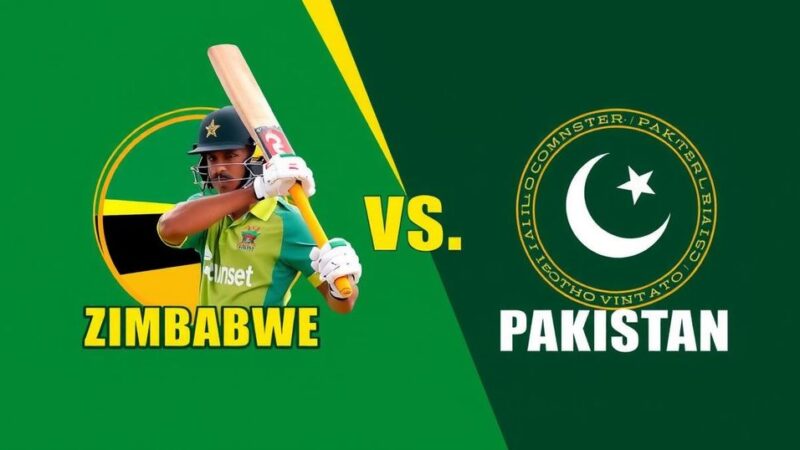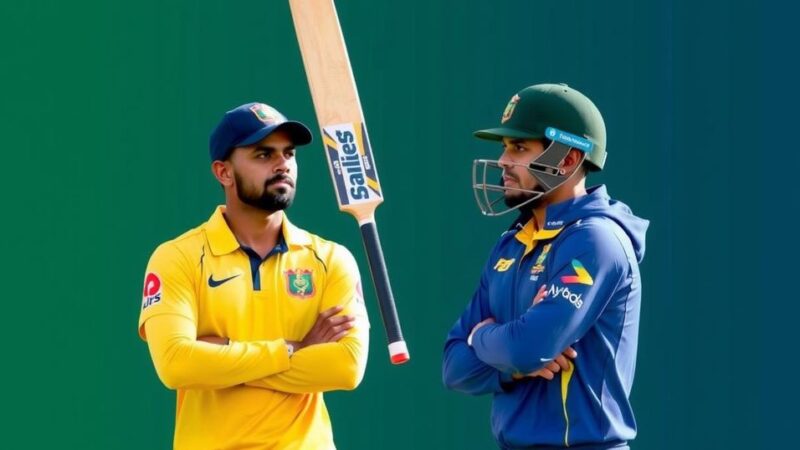The race for the World Test Championship final is heating up, with India, Australia, Sri Lanka, and South Africa each vying for position. India leads with 74.24%, while Sri Lanka’s recent victories have boosted them to 55.56%. Australia is closely behind at 62.50%. Teams like Bangladesh and New Zealand are struggling, facing steep challenges to qualify.
The competition for the top positions in the current World Test Championship (WTC) cycle is intensifying, with several teams vying for a place in the final. As the season progresses, teams such as India, Australia, Sri Lanka, and South Africa are closely monitored based on their percentage points and remaining series. Sri Lanka currently possesses a percentage of 55.56, having secured 24 points from their last two Tests. With upcoming series against South Africa and Australia, they have the potential to significantly enhance their standings if they achieve victories. A sweep in their final four matches could propel them to 69.23%, whereas winning three matches would still keep their chances alive, landing them at 61.54%. India leads the table with a percentage of 74.24 and has a fervor to maintain their position. Their previous victory in Kanpur strengthens their case, as winning all remaining eight Tests could elevate their standing to 85.09%. However, securing at least four wins and two draws is crucial to ensure qualification, which would bring their total to 67.54%. Should they underperform, other teams like Australia and South Africa stand ready to capitalize. Bangladesh and New Zealand remain outside strong contention, with percentages of 34.38 and 37.50, respectively. Both face challenges in their upcoming series, making their pathways to the final complicated. Australia, presently in second position with 62.50%, can still finish with a maximum of 76.32% if they secure victories in their remaining seven Tests. Each win against fellow contenders India and Sri Lanka will bolster their prospects. Similarly, South Africa holds a percentage of 38.89 and can qualify by winning all six of their remaining Tests, potentially finishing at 69.44%. England, Pakistan, and the West Indies are on the lower end of the spectrum with limited chances of qualifying for the final. With England at 42.19%, Pakistan at 19.05%, and West Indies trailing at 18.52%, they would require extraordinary results in their remaining matches to improve their standings significantly.
The World Test Championship represents a significant endeavor in international cricket, allowing teams to compete for supremacy over a multi-year cycle. The ongoing cycle features various teams competing in a format where points accumulate based on match outcomes, with the goal of finishing in the top two positions to qualify for the final. Each team’s performance is critical, and the remaining series play a pivotal role in determining their ultimate placement. With ten series and 26 Tests remaining, teams are evaluated based on their current standings, potential to earn points, and the implications of upcoming matches against their rivals. This analysis provides insights into the competitive landscape of the WTC and highlights the stakes involved for each participating nation.
As the World Test Championship cycle draws towards its conclusion, the battle for the final positions intensifies among teams such as India, Australia, Sri Lanka, and South Africa. Each team’s performance in the coming series is crucial to their qualification prospects. With dominant teams such as India looking to solidify their spot, and contenders like Sri Lanka presenting formidable challenges, the outcomes of the remaining matches are vital in determining which teams will advance to the ultimate showdown in the final. It remains essential for all participating teams to strive for excellence as they head into this decisive phase of the competition.
Original Source: www.espncricinfo.com






